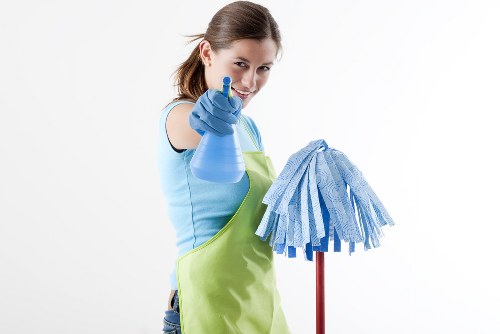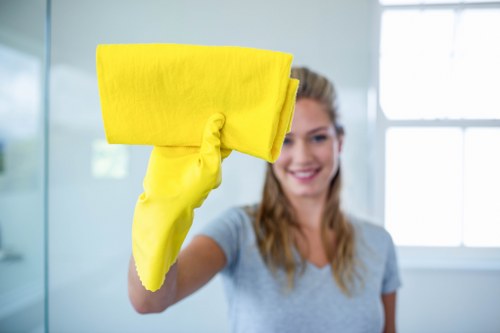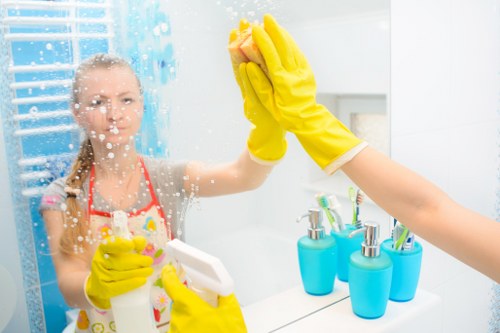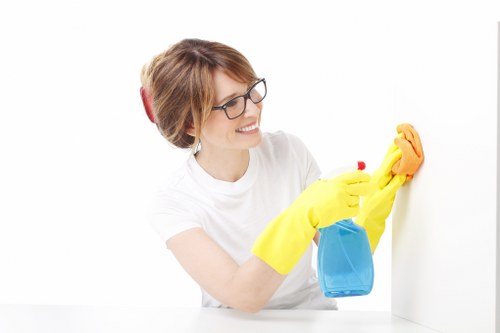Ultimate Guide to Domestic Cleaning in Carpet Shampoo

Domestic cleaning plays a crucial role in maintaining a healthy and aesthetically pleasing home environment. Among the various aspects of home maintenance, carpet shampooing stands out as a vital service that not only refreshes the appearance of your carpets but also ensures their longevity. In this comprehensive guide, we will delve into the intricacies of domestic carpet shampoo cleaning, exploring its benefits, methods, and tips for selecting the right service provider.
Carpets are a significant investment in any household, providing comfort, insulation, and enhancing the overall decor. However, over time, they accumulate dust, allergens, stains, and odors, which can compromise both their appearance and the indoor air quality of your home. Regular carpet shampooing is essential to address these issues effectively.
Understanding the importance of carpet shampoo is the first step towards maintaining a clean and healthy living space. This process involves deep cleaning the carpet fibers to remove embedded dirt and contaminants, ensuring a fresh and vibrant appearance.

Benefits of Professional Carpet Shampooing
Opting for professional carpet shampooing offers numerous advantages that go beyond simple surface cleaning. Here are some key benefits:
- Enhanced Appearance: Professional cleaning restores the carpet's original color and texture, making your rooms look more inviting.
- Healthier Environment: Removing allergens, dust mites, and bacteria improves indoor air quality, reducing the risk of respiratory issues.
- Prolonged Carpet Life: Regular maintenance prevents premature wear and tear, extending the lifespan of your carpets.
- Stain Removal: Expert techniques effectively eliminate stubborn stains, preserving the carpet's aesthetic value.
- Odor Elimination: Deep cleaning removes unpleasant odors, leaving your home smelling fresh.
Investing in professional carpet shampooing is a proactive measure to ensure your living spaces remain clean, healthy, and visually appealing.
Moreover, professional services use advanced equipment and eco-friendly cleaning agents that are safe for both your family and the environment.

Different Carpet Shampooing Methods
There are various methods of carpet shampooing, each with its unique advantages depending on the carpet type and the extent of cleaning required. The most common methods include:
- Hot Water Extraction: Also known as steam cleaning, this method uses hot water and powerful vacuum pressure to remove dirt and contaminants.
- Dry Carpet Cleaning: This technique involves applying a dry cleaning compound to the carpet, which binds with dirt and is then vacuumed away.
- Bonnet Cleaning: A machine with a rotary floor machine and absorbent pad is used to scrub the carpet surface, ideal for quick cleanups.
Each method has its specific applications, and the choice depends on factors such as the carpet material, the level of soiling, and the desired drying time.
Understanding these methods helps in selecting the most suitable carpet shampooing technique for your home.

Choosing the Right Carpet Shampoo Service
Selecting a reliable and efficient carpet shampoo service is essential to achieve the best results. Here are some tips to guide your decision:
- Experience and Reputation: Look for companies with a proven track record and positive customer reviews.
- Certifications and Training: Ensure the technicians are certified and trained in the latest cleaning techniques.
- Eco-Friendly Products: Opt for services that use environmentally friendly cleaning agents to ensure the safety of your home.
- Comprehensive Services: Choose providers offering a range of services, including stain removal, deodorization, and preventive treatments.
- Transparent Pricing: Select companies that provide clear and upfront pricing without hidden charges.
By considering these factors, you can ensure that you receive high-quality carpet shampooing services tailored to your specific needs.
Don’t hesitate to ask for references or before-and-after photos to assess the quality of their work.

DIY Carpet Shampooing Tips
While professional services offer comprehensive cleaning, there are effective DIY carpet shampooing techniques you can employ to maintain your carpets between professional cleanings:
1. Regular Vacuuming
Vacuum your carpets at least twice a week to remove surface dirt and prevent it from embedding into the fibers.
2. Spot Cleaning
Address spills and stains immediately using appropriate cleaning solutions to prevent long-term damage.
How to Spot Clean:
- Blot the spill with a clean cloth to absorb as much liquid as possible.
- Apply a carpet stain remover and gently scrub the area.
- Rinse with water and blot dry.
3. Deep Cleaning
Consider periodic deep cleaning using a rented carpet shampooer or hiring a professional service to tackle embedded dirt.
Steps for Deep Cleaning:
- Remove furniture from the area to be cleaned.
- Pre-treat any visible stains.
- Use a carpet shampooer with the appropriate cleaning solution.
- Allow the carpet to dry completely before replacing furniture.

Common Carpet Stains and How to Remove Them
Different stains require specific treatment methods for effective removal. Here are some common carpet stains and the best practices to eliminate them:
1. Red Wine Stains
Blot the spill immediately and apply a mixture of white vinegar and dishwashing liquid. Rinse with cold water and blot dry.
2. Pet Stains
Use an enzymatic cleaner to break down the proteins in the urine, eliminating both the stain and odor.
Tips for Preventing Pet Stains:
- Train pets to use designated areas.
- Use carpet protectors or area rugs in high-traffic areas.
3. Coffee Stains
Mix white vinegar with water and apply to the stain. Gently blot and rinse with cold water.
4. Ink Stains
Apply rubbing alcohol to the affected area and blot until the stain lifts. Repeat as necessary.

Maintaining Carpet Freshness
Maintaining the freshness of your carpets involves regular care and preventive measures. Here are some strategies to keep your carpets clean and odor-free:
- Use Doormats: Place doormats at all entrances to reduce the amount of dirt and moisture tracked onto the carpets.
- Implement a No-Shoes Policy: Encourage family members and guests to remove shoes before walking on carpets.
- Airtight Storage: Keep household chemicals and perfumes in airtight containers to prevent accidental spills and lingering odors.
- Ventilation: Ensure proper ventilation in rooms with carpets to reduce humidity and prevent mold growth.
- Regular Rotation: Rotate furniture periodically to prevent excessive wear in specific areas of the carpet.
Incorporating these practices into your daily routine can significantly enhance the longevity and appearance of your carpets.
Additionally, consider using carpet deodorizers or baking soda treatments to neutralize odors between professional cleanings.

Understanding Carpet Materials and Their Cleaning Needs
Different carpet materials require tailored cleaning approaches to maintain their quality and appearance. Here’s an overview of common carpet types and their specific cleaning needs:
1. Wool Carpets
Wool is a natural fiber known for its durability and stain resistance. However, it requires gentle cleaning methods to prevent damage. Use mild detergents and avoid excessive moisture.
2. Synthetic Carpets (Nylon, Polyester, Olefin)
Synthetic carpets are highly durable and stain-resistant, making them easier to clean. They can withstand various cleaning methods, including hot water extraction and dry cleaning.
Advantages of Synthetic Carpets:
- Resistance to stains and fading.
- Quick drying times.
- Affordability.
3. Natural Fiber Carpets (Sisal, Jute, Seagrass)
Natural fiber carpets add a unique texture and aesthetic but are more delicate. They require specialized cleaning solutions and methods to maintain their integrity.
4. Berber Carpets
Berber carpets have a looped structure that makes them resistant to wear but susceptible to staining. Regular vacuuming and spot cleaning are essential for maintaining their appearance.
- Tip: Always check the manufacturer’s guidelines before selecting a cleaning method.

The Role of Carpet Shampoo in Allergy Prevention
For households with allergy sufferers, regular carpet shampooing is essential in reducing allergens and maintaining a healthy indoor environment. Carpets can harbor dust mites, pollen, pet dander, and other allergens that exacerbate allergic reactions.
How Carpet Shampoo Helps:
- Deep Cleaning: Removes allergens trapped deep within the carpet fibers.
- Antimicrobial Agents: Some carpet shampoos contain agents that kill bacteria and mold spores.
- Odor Removal: Eliminates musty smells that can be caused by mold and mildew growth.
Incorporating regular carpet shampooing into your cleaning routine can significantly reduce the presence of allergens, contributing to a healthier living space.
Additionally, using hypoallergenic cleaning products ensures that no harsh chemicals irritate sensitive individuals in the household.

Eco-Friendly Carpet Shampoo Options
With growing environmental awareness, eco-friendly carpet shampoo options have become increasingly popular. These alternatives prioritize sustainability and safety without compromising cleaning effectiveness.
Benefits of Eco-Friendly Carpet Shampoos:
- Non-Toxic Ingredients: Safe for children, pets, and individuals with chemical sensitivities.
- Biodegradable: Environmentally friendly formulas that break down naturally.
- Reduced Environmental Impact: Lower carbon footprint due to sustainable production practices.
Top Eco-Friendly Carpet Shampoo Brands:
- Bona Carpet Cleaner: Known for its green-certified formulas.
- Eco-Me Carpet Shampoo: Utilizes plant-based ingredients for effective cleaning.
- Method Carpet Cleaner: Offers biodegradable and recyclable packaging.
Choosing eco-friendly carpet shampoo not only benefits the environment but also ensures a safer home environment.
When selecting a green carpet cleaning product, look for certifications such as Green Seal or EcoLogo to guarantee their eco-friendly claims.

Cost-Effectiveness of Professional Carpet Shampooing
Investing in professional carpet shampooing may seem costly initially, but it offers long-term financial benefits. Here's how:
- Extended Carpet Lifespan: Regular maintenance prevents costly replacements by preserving carpet integrity.
- Energy Savings: Clean carpets contribute to better insulation, potentially reducing heating and cooling costs.
- Preventive Care: Early removal of stains and contaminants avoids expensive repair and restoration services.
Moreover, professional services often provide warranties and guarantees, ensuring that you receive value for your investment.
Consider the cost of carpet replacement and the added benefits of a healthier living environment when evaluating the cost-effectiveness of professional cleaning services.

Scheduling Your Carpet Shampoo Service
Proper scheduling of your carpet shampooing service ensures minimal disruption to your daily routine and optimal cleaning results. Here are some tips for effective scheduling:
Best Times to Schedule:
- Spring Cleaning: Utilize the change of seasons to deep clean your carpets.
- After Major Events: Cleaning up after parties or gatherings helps maintain carpet longevity.
- Regular Intervals: Schedule professional cleanings every 6-12 months for consistent maintenance.
Preparing for the Service:
To facilitate an efficient cleaning process, follow these preparation steps:
- Remove furniture and obstacles from the carpeted areas.
- Pre-treat any visible stains or spots.
- Ensure adequate ventilation by opening windows and doors.
- Secure pets in a safe area away from the cleaning zones.
By preparing in advance, you can ensure a smooth and effective carpet shampooing experience.
Communicate any specific concerns or areas of focus with your cleaning service provider to achieve the best results.

Frequently Asked Questions about Carpet Shampooing
Addressing common queries can help you make informed decisions about carpet cleaning. Here are some frequently asked questions:
1. How Often Should I Shampoo My Carpets?
It's recommended to shampoo your carpets professionally every 6-12 months, depending on foot traffic and household factors such as pets and allergies.
2. Will Carpet Shampooing Remove All Stains?
While many stains can be effectively removed, some may require specialized treatments. Always inform your cleaning service about specific stains for appropriate handling.
3. Is Carpet Shampooing Safe for All Carpet Types?
Most carpet types can be shampooed, but it's essential to use the correct cleaning method and products suited to your carpet material.
Expert Tip:
Consult with your carpet manufacturer or a professional cleaner to determine the best cleaning practices for your specific carpet.
4. How Long Does It Take for Carpets to Dry After Shampooing?
Drying time varies based on the cleaning method and environmental conditions, typically ranging from a few hours to overnight.
5. Can I Shampoo My Carpets Myself?
Yes, DIY carpet shampooing is possible with the right equipment and products, but professional services often achieve more thorough and long-lasting results.

Conclusion
Maintaining clean carpets through regular domestic cleaning in carpet shampoo is essential for a healthy and beautiful home. Professional carpet shampooing offers numerous benefits, including enhanced appearance, improved indoor air quality, and prolonged carpet lifespan.
By understanding the various cleaning methods, selecting the right service provider, and implementing effective maintenance practices, you can ensure that your carpets remain in pristine condition for years to come.
Don't wait until your carpets are visibly dirty or smelling unpleasant. Contact us today to schedule your professional carpet shampooing service and experience the transformative effects of a thoroughly cleaned home.
Book your service now and take the first step towards a cleaner, healthier living environment.